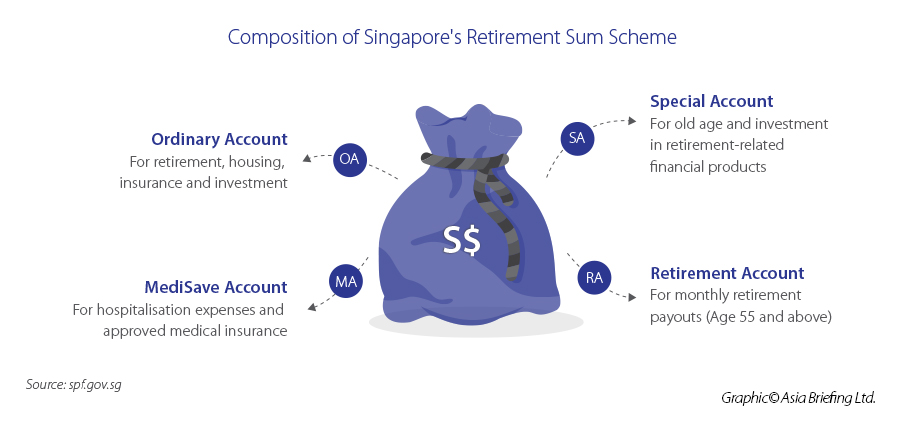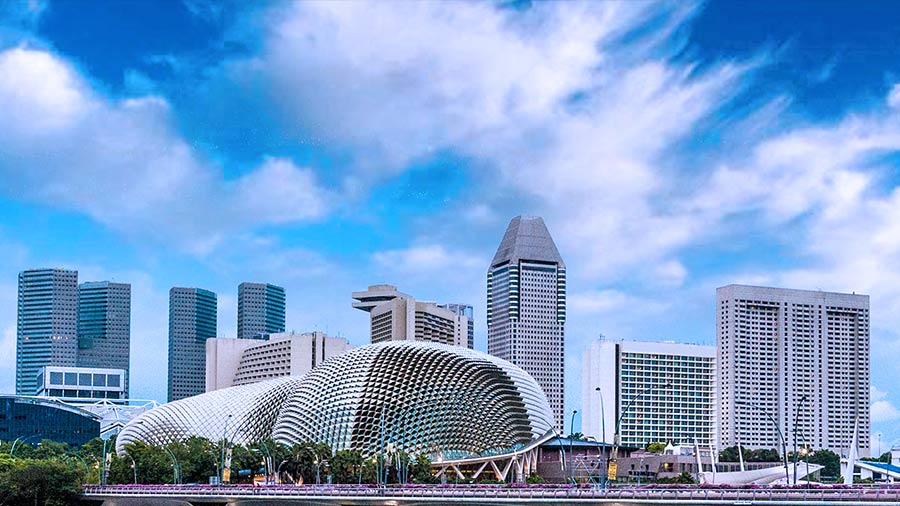Singapore has a very strong legal infrastructure for protecting the rights of workers, and as such, employers are subject to a number of labor and fair employment laws and regulations.
Domestic employees in Singapore are protected by the Employment Act (EA), which also outlines the responsibilities of employers to their employees, while foreign employees are covered by the Employment of Foreign Manpower Act (EFMA).
Employers in Singapore must also adhere to the Fair Consideration Framework (FCF) and the Tripartite Guidelines on Fair Employment Practices, which outline requirements for employers to ensure fair hiring and employment practices.
Hiring domestic employees
Singapore maintains a merit-based employment system and prohibits discrimination against employment based on traits unrelated to the job position, including age, race, gender, religion, marital status and family responsibilities, and disability. It also encourages the core of the workforce to be made up primarily of Singaporean nationals, and companies are required to make all job positions open to Singaporean candidates.
Employers must evaluate candidates based on criteria related directly to the job position, such as:
- Academic qualifications;
- Prior work experience;
- Specific work-related skills; and
- Employee’s willingness to fulfill job requirements.
Due to Singapore’s strict employment requirements, companies should ensure that HR and other staff members involved in the hiring process are familiar with workplace and hiring practices and are trained to identify discriminatory behavior and other legal violations.
When hiring a candidate, employers are required to issue the Key Employment Terms within 14 days of the start of employment.
Further, employers must also contribute to their Singaporean and Singapore permanent residents’ social insurance by paying into their Central Provident Fund (CPF).
Hiring foreign employees
To hire a foreign employee, employers must apply for the requisite work permit on behalf of their employee, such as an Employment Pass (EP) or S Pass.
Under the FCF and the Tripartite Guidelines on Fair Employment Practices, Singapore imposes rules preventing companies from pre-selecting foreign candidates to ensure that domestic employers are provided with a fair opportunity to apply for a job opening.
Therefore, employers wishing to submit an application for an EP to hire a foreign employee must first advertise the position on the MyCareersFuture website and consider and evaluate all applicants fairly.
Positions advertised on the MyCareersFuture website must meet certain requirements, including:
- Must not contain any wording that discriminates against candidates based on traits unrelated to the job position, such as age, gender, race, religion, marital status, language, and nationality. If a job has specific language requirements, the reason for the requirement must be clearly stated.
- The job description must match the occupation of the EP or S Pass application.
- Salary must be clearly indicated and salary ranges must include the amount offered to the EP candidate.
- Must be visible for 28 days.
Companies that are found to violate these requirements or engage in discriminatory hiring practices may be fined or be subject to other punishments, such as having work pass privileges curtailed.
Certain job positions and companies are exempt from advertising on the MyCareersFuture website. Exemptions are provided for:
- Companies with fewer than 10 employees;
- The fixed monthly salary of the position is S$20,000 (US$14,850) or above;
- Short-term roles of 1 month or less; or
- The role is filled through an internal transfer by an employee who is already employed locally.
- The role is filled by an overseas intra-corporate transferee under the World Trade Organisation’s General Agreement on Trade in Services or an applicable Free Trade Agreement that Singapore is party to.
Foreign students over the age of 14 who hold a Student Pass are permitted to work in Singapore without a work pass, provided they are enrolled in an approved institution.
Employment permits
The Ministry of Manpower (MoM) issues a wide range of employment permits to expatriates planning to work in Singapore. Each employment permit differs across various categories of employees and is based on their professional skills and monthly salaries.
It is important for applicants to note that most work permits are applied through the employer or an employment agent, via the MoM’s online platform. Therefore, it is mandatory for skilled professionals to first obtain a job offer in the country before applying.
Applicants must score at least 40 points under the COMPASS system, which are awarded based on four attributes and two bonus criteria.
Employing young people and children
Singapore restricts the type of work and labor that children and teenagers can do, and they are protected under Part VIII of the Employment Act and the Employment of Children and Young Persons Regulations.
Minors aged 15 to 16 are permitted to work in a non-industrial setting. Companies wishing to employ children aged 15 to 16 in an industrial setting must notify the MoM of their intentions and submit a medical report within 30 days of their employment.
Minors over the age of 16 are permitted to work in industrial settings but cannot work in jobs with a high risk of personal injury. Such positions include roles that require them to service or attend to moving machinery, being near live electrical equipment, or working underground. There are also stricter limitations on the number of hours minors can work when doing manual labor.
Obligations for companies when hiring in Singapore
Employment contracts
The essential clauses of a contract of service in Singapore include:
- Commencement of employment, full name of employer and employee;
- Appointment - job titles, main duties, and responsibilities;
- Working arrangements (hours of work, number of working days per week, rest day);
- Probation period (if any);
- Remuneration (Salary period, basic period, fixed allowances/deduction, overtime rate of pay, bonus and incentives, etc.);
- Employee benefits (sick leave, annual leave, maternity leave, etc.), other medical benefits;
- Termination of contract - notice period; and
- Code of conduct.
Main clauses in the Employment Act (EA)
The EA affects all businesses and all employees – local and foreign – under contract with an employer in Singapore.
Those excluded under the EA are public servants, seafarers, and domestic workers as they are covered by other regulations.
Employee entitlements are given to workmen (manual labor workers or blue-collar workers), non-workmen (non-managers and executives, white-collar workers), and managers and executives (M&Es). There is no threshold limit for managers and executives (M&Es) to enjoy the core provisions.
The core provisions include:
- Timely payment of salaries;
- Paid annual and sick leave;
- Paid public holidays;
- Protection from wrongful dismissal; and
- Maintenance of employment records.
Salary threshold for non-workmen
Non-workmen earning up to S$2,600 (US$1,933) are protected by the Part IV provisions (which provide for rest days, hours of work, and other conditions of service) and the overtime rate will be capped at S$2,600 (US$1,933). Managers and executives are not covered under the Part IV provisions.
Salary deductions
Employers may make deductions, such as for company insurance plans, but only if the employee agrees to the deduction in writing and can withdraw the consent at any time without incurring sanctions. This arrangement provides employers with the flexibility to cater to mutually agreed deductions while safeguarding the salary of employees.
Medical certificates (MCs) and hospitalization leave
MCs issued by doctors and dentists registered under the Medical Registration Act, 1997, and the Dental Registration Act, 1999 are recognized. This provides employees with the convenience to visit doctors closer to home. However, this policy does not impact the reimbursement of medical consultation fees. Employers are only required to reimburse fees from government doctors or company-approved doctors.
Working on public holidays
Compensation for working on public holidays is applicable to all employees. Part IV employees will continue to receive an extra day’s pay or a full day off.
Wrongful dismissal
The Employment Claims Tribunal (ECT) manages wrongful dismissal claims and adjudicates salary-related claims.
Employees who feel they’re forced to resign and can substantiate their claims can submit a dismissal claim. This is described in the EA as:
- Dismissal due to discrimination based on the employee’s age, gender, disability, nationality, race or religion;
- Dismissal to deprive an employee of benefits/entitlements — such as maternity benefits and bonus entitlements; and
- Dismissal to punish an employee for exercising a right — such as whistleblowing.
For M&Es to submit a wrongful dismissal claim, they need to have served a minimum period of six months at their respective companies. Before the reform, M&Es needed to serve one year before making a claim. For non-M&Es, there is no minimum service period required. Either party could, however, terminate an employment contract by providing written notice or by paying a salary in lieu of the other party.
Annual leave and public holidays
Employees are entitled to a minimum of seven to 14 days of annual leave, paid public holidays, sick leave, and statutory protection against wrongful dismissal.
Social insurance
The Central Provident Fund (CPF) is a social security savings scheme funded by contributions from employers and employees. This mandatory program is an important pillar of Singapore’s social security system and aims to meet the retirement, housing, and healthcare needs of its people.
However, foreign employees are not covered under the CPF and cannot make contributions.
Individual CPF funds are further subcategorized into three savings accounts: Ordinary Account, Special Account, and Medisave Account.












